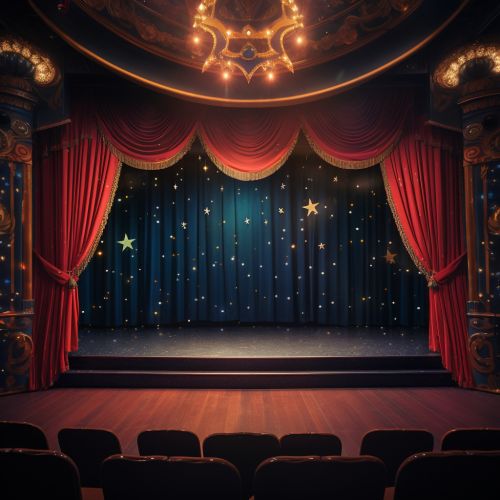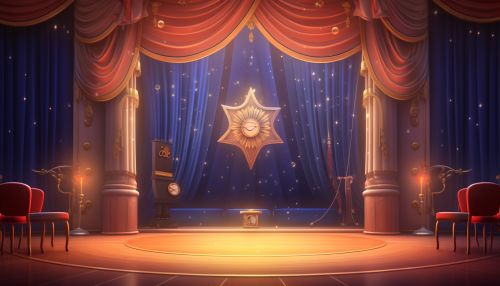Show
Definition
A show is a form of entertainment that can be watched by an audience. Shows can take various forms, including plays, musicals, concerts, television programs, radio programs, and more. They can be live or recorded, and can be presented in various venues, such as theaters, stadiums, and on digital platforms.


History
The concept of a show has a long history, dating back to ancient times. The earliest forms of shows were probably storytelling and music performances, which were part of the cultural practices of many ancient societies. These early shows were often religious or ceremonial in nature. The ancient Greeks, for example, held theatrical performances in honor of the god Dionysus, which were a form of show.
In the Middle Ages, shows often took the form of mystery plays, which were religious dramas that told stories from the Bible. These were often performed in churches or in the streets during religious festivals.
The Renaissance saw the development of more secular forms of shows, such as the commedia dell'arte in Italy and the masques in England. These shows often involved music, dance, and elaborate costumes.
In the 19th and 20th centuries, the advent of new technologies such as film and television led to new forms of shows. Cinema became a popular form of entertainment, with films being shown in theaters. Television shows became a staple of home entertainment, with a wide variety of genres and formats available.
Today, shows can be found in a multitude of formats and platforms, from live theater performances to streaming television series.
Types of Shows
There are many different types of shows, each with its own characteristics and conventions. Some of the most common types include:
Theater
Theater shows are live performances that take place on a stage. They can include plays, musicals, operas, ballets, and more. Theater shows often involve a combination of acting, singing, dancing, and other forms of performance.
Concerts
Concerts are live music performances. They can feature a single musician or a group of musicians, and can cover a wide range of musical genres. Concerts can take place in a variety of venues, from small clubs to large stadiums.
Television Programs
Television programs are shows that are broadcast on television. They can include dramas, comedies, reality shows, game shows, news programs, and more. Television programs can be broadcast on a schedule, or they can be streamed on demand.
Radio Programs
Radio programs are shows that are broadcast on radio. They can include music, news, talk shows, and more. Like television programs, radio programs can be broadcast on a schedule, or they can be streamed on demand.
Digital Shows
Digital shows are shows that are created and distributed through digital platforms. They can include web series, podcasts, and more. Digital shows can be streamed on demand, and can often be accessed from anywhere in the world.
Production
The production of a show involves many different stages, from the initial concept to the final performance or broadcast. The process can vary greatly depending on the type of show, but some common stages include:
Concept Development
The first stage of producing a show is developing the concept. This involves coming up with the idea for the show, and planning out the basic elements, such as the plot, characters, and setting.
Scriptwriting
Once the concept has been developed, the next stage is to write the script. The script provides the dialogue and stage directions for the show. In the case of a television or radio program, the script may also include instructions for camera angles, sound effects, and other technical elements.
Pre-production
Pre-production involves all the planning and preparation that needs to be done before the show can be performed or recorded. This can include casting, set design, costume design, and more.
Production
The production stage is when the show is actually performed or recorded. This involves the actors performing the script, with the director overseeing the process to ensure that the show is being performed as planned.
Post-production
After the show has been performed or recorded, there is often a post-production stage. This can involve editing the footage, adding special effects, mixing the sound, and more.
Impact and Significance
Shows have a significant impact on society and culture. They can entertain, educate, and inspire, and can provide a platform for creative expression. Shows can also have economic impact, creating jobs and contributing to the economy through ticket sales, advertising revenue, and more.
